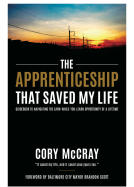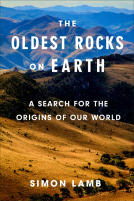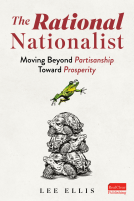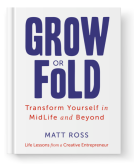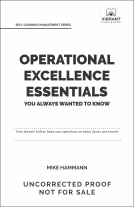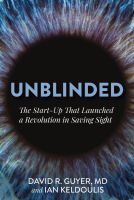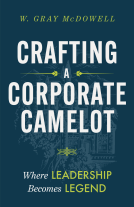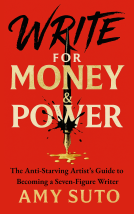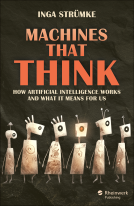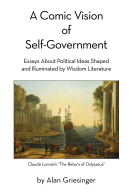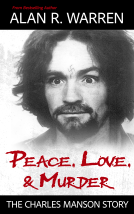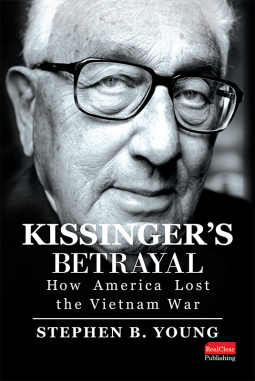
Kissinger's Betrayal
How America Lost the Vietnam War
by Stephen B. Young
This title was previously available on NetGalley and is now archived.
Send NetGalley books directly to your Kindle or Kindle app
1
To read on a Kindle or Kindle app, please add kindle@netgalley.com as an approved email address to receive files in your Amazon account. Click here for step-by-step instructions.
2
Also find your Kindle email address within your Amazon account, and enter it here.
Pub Date 23 May 2023 | Archive Date 10 Aug 2023
Amplify Publishing Group | RealClear Publishing
Talking about this book? Use #KissingersBetrayal #NetGalley. More hashtag tips!
Description
“Kissinger’s Betrayal is arguably the most important single source published in decades for understanding why America went to war in Vietnam, why doing so was important, and what went wrong and ultimately led to a Communist victory.” —Prof. Robert F. Turner, SJD, former president of the U.S. Institute of Peace, author of Vietnamese Communism: Its Origins and Development, and co-founder of the Center for National Security Law at the University of Virginia
What really happened in Vietnam?
For five decades, conventional wisdom about the Vietnam War has been that it was lost because it never could have been won. South Vietnam was doomed to defeat. The American effort was a foreign intrusion forever incapable of winning the “hearts and minds” of the South Vietnamese people.
But what if South Vietnam was defeated not because of its own shortcomings but because it was betrayed by a secret deal made behind its back? Deeply researched and compellingly argued, Kissinger’s Betrayal uses once-secret files of the American ambassador to South Vietnam and long-overlooked documents from official government archives—including the foreign ministry of the Soviet Union—to reveal for the first time how Henry Kissinger personally and secretly schemed to irrevocably compromise South Vietnam’s chances for survival.
Without informing his president, other American leaders, or US allies in South Vietnam, Kissinger unilaterally made a horrendous—and ultimately completely unnecessary—diplomatic concession that allowed Communist North Vietnam to leave its army inside South Vietnam and then freely resume its war of invasion and conquest at a time of its own choosing.
In an unprecedented account, historian and global executive director of the Caux Round Table for Moral Capitalism Stephen B. Young provides new insight into both genuine Vietnamese Nationalism and the French colonialism that marginalized and decentered the right of the Vietnamese people to live freely in an independent country of their own choosing.
Kissinger’s Betrayal reveals a fresh and more truthful history of the Vietnam War that restores dignity to America as well as the people of Vietnam.
Advance Praise
- “I first met Steve Young more than half a century ago when I was an Army captain on detail to the American embassy in Saigon as an expert on Vietnamese Communism. Steve was an extraordinary figure even then, held in the highest esteem by Ambassador Ellsworth Bunker and Deputy CORDS Director Bill Colby. The reason was clear—few if any Americans in Vietnam at the time rivaled his in-country experience and extraordinary command of Vietnam and its language and culture. After the war, he distinguished himself as a legal scholar and dean at Harvard and other law schools and in the private sector. Honorable people can disagree about the relative American contributions to that outcome—and Robert McNamara, the news media, Congress, and John Kerry certainly played notorious roles—but it is difficult to read the once highly classified documents disclosed in this landmark study without concluding Henry Kissinger betrayed his public trust and contributed to the deaths of millions of South Vietnamese and Cambodians and the loss of freedom for countless more. This book is highly recommended for scholars, students, policymakers, and the public alike seeking to understand this important if painful part of our history. Failing to understand the lessons of history would add to the tragedy. Kissinger’s Betrayal is arguably the most important single source published in decades for understanding why America went to war in Vietnam, why doing so was important, and what went wrong and ultimately led to a Communist victory.” —Prof. Robert F. Turner, SJD, former president of the U.S. Institute of Peace, author of Vietnamese Communism: Its Origins and Development, and co-founder of the Center for National Security Law at the University of Virginia
- “All the days of my husband’s youth were dedicated to being a teammate in the ranks of fighters protecting the territory of South Vietnam, especially to protect the soul of our nation and our spirit of nationalism in resisting the aggression of a foreign ideology—Communism.
In April 1975 luck turned against the struggle; Communist soldiers conquered the South. Since then many books and articles have shined a light on this truth: the South lost the fight but not the rightful cause. The spirit of nationalism was not defeated. For my husband, he preserved the silent dignity of the defeated warrior because he always believed that he had fought for a just cause, upholding the sacred soul of rivers and mountains.
While reading the book Kissinger’s Betrayal by Stephen Young, I was taken aback and moved by the thoughtful understanding on the part of an American of the national feelings of Vietnamese. I (along with the spirit of my late husband and also, I believe, in accord with millions of other Vietnamese) thank Stephen Young for his efforts.
With high regard, I recommend this book to every Vietnamese—whether inside Vietnam or overseas; Communist and non-Communist—in order to seek out the origins, put aside ideologies, and understand the national spirit of the Vietnamese that we have sustained for thousands of years.” —Nguyen Tuong Nhung, wife of Lieutenant General Ngo Quang Truong of the Army of the Republic of Vietnam; daughter of Nguyen Tuong Vinh (pen name Thach Lam); niece of Nguyen Tuong Tam (pen name Nhat Linh) - “This book is brilliantly written—concisely sophisticated, substantive in content, and comprehensive. But it is a sad story that reveals how prejudice and dishonesty were given priority over the dignity and credibility of the United States as the pillar of freedom, patriotism, and democracy. South Vietnam was taken for a ride by Henry Kissinger.” —Kasit Piromya, former Thai foreign minister
- “The period of the Vietnam War was arguably as divisive for the American polity as is the polarization of today. Time heals, but history reveals. Steve Young has contributed to the history of that divisive epoch by revealing the true cost of peace in this superb volume. There is now evidence that peace might have come earlier to Vietnam but for active interference by Richard Nixon at the end of the Lyndon Johnson administration. Nixon won the 1968 election suggesting that he had a “secret plan” to end the war. “Peace with honor” was his mantra. But the war went on and on. Now, as Young reveals, the peace that came eventually was neither honorable nor fair to those Vietnamese who were America’s allies. Young presents compelling evidence that Henry Kissinger sanctioned the continuing presence of regular North Vietnamese troops in South Vietnam. In achieving a peace agreement, Kissinger signed the death warrant for the South Vietnamese government. For that he received a Nobel Peace Prize, but it was a peace that was far from honorable.” —J. Brian Atwood, former undersecretary of state, administrator of USAID, and Dean of the Humphrey School at the University of Minnesota
- “Stephen Young has produced an account of Vietnam’s tragedy that is as moving as it is erudite. He takes readers inside the mind of a nation that struggled for its distinct national identity against three empires—Chinese, French, and Soviet—and was betrayed by its American ally. He offers a plethora of evidence to show that Vietnamization of the war was succeeding until it was sandbagged. Young combines the inside knowledge of a participant with the precision of a scholar in a persuasive indictment of Henry Kissinger as the author of South Vietnam’s fall to Communism. It is a unique combination of testimony and analysis that stands out in the voluminous literature on the Vietnam War. It is indispensable reading for anyone who wants to understand the troubled history of Southeast Asia as well as the damage that arrogant elitists have inflicted on America’s world standing.” —David P. Goldman, deputy editor, Asia Times
- “From a Japanese point of view, this book is a major contribution to our understanding of Asian history. From the first years of the twentieth century, Japan was compassionately supportive of the Vietnamese Nationalists in their struggle against French colonialism and then Communism as a continuing expression of European cultural imperialism. In the 1970s, first as Japanese ambassador to Saigon and later as Japan’s deputy foreign minister, my father felt helpless to do anything but expressed deep sympathy to the government in Saigon. Later, as ambassador to the United States, he maintained the highest respect for, and his friendships with, those Vietnamese whom he had met in Saigon but who were now refugees in America.” —Kazuhiko Togo, former Japanese ambassador to the Netherlands and visiting professor, Shizuoka University
- “In 1973, the Nobel Peace Prize Committee voted to give the award jointly to Henry Kissinger and Le Duc Tho (North Vietnam’s chief negotiator) for the cease-fire agreement that enabled the US to withdraw its forces from South Vietnam. While Kissinger accepted, Le Duc Tho declined. Both were consistent with their public positions. In 1975, the South fell. Had the Peace Prize been awarded in 1975, Kissinger would probably have refused, while Le Duc Tho might have accepted. Stephen Young has told me his account of the Vietnam War and its peace negotiations from years ago. I am glad that he has finally published it with supporting evidence, some only recently available. It is a provocative but important perspective that should be neither ignored nor forgotten by future generations.” —George Yeo, former Singapore foreign minister
Available Editions
| EDITION | Hardcover |
| ISBN | 9781637553596 |
| PRICE | $32.95 (USD) |
| PAGES | 432 |
Links
Available on NetGalley
Average rating from 3 members
Featured Reviews
 CASPER H, Bookseller
CASPER H, Bookseller
Kissingers Betrayal uses formerly classified documents to portray Secretary of State Henry Kissinger as a deeply arrogant and amoral man. Was Kissinger truly a hater of Communism as he would like to be believed? How could it be explained that he undermined the Anti-Communist movement by supporting the recognition of Communist China? This new work of history paints an even darker and possibly more complex portrait of Secretary Kissinger. Is it an accurate portrait that is for the reader to decide? Would the South Vietnamese Government survive if Kissinger had not meddled? YOu can not prove what has not happened only look at what has and judge that. Read this book, then go read more about the time for a fuller view.
 Mike M, Media/Journalist
Mike M, Media/Journalist
This book was very well written and only serves to make me angry on behalf of all the men and women who lost their lives in the Vietnam War. A total waste for nothing.
 Media/Journalist 971581
Media/Journalist 971581
Top U.S. policymakers betrayed South Vietnam. This poignant story is beautifully written. The U.S. intended to intervene to prevent Soviet expansion; however, individual egotism and overconfidence were as damaging as the weapons supplied by the Kremlin. Vietnam had the potential to support patriotic, anti-communist Vietnamese and prevent a wave of mass immigration, but it ultimately turned into a tragedy for America and the Western world. This book is highly recommended for anyone who wishes to understand the obstacles to achieving just peace deals.
Readers who liked this book also liked:
Lee Ellis
Politics & Current Affairs
Mike Hammann, Vibrant Publishers
Business, Leadership, Finance
Dr. David Guyer & Ian Keldoulis
Business, Leadership, Finance, Health, Mind & Body, Science
Inga Strümke
Computers & Technology, Nonfiction (Adult), Professional & Technical
Alan R. Warren
Biographies & Memoirs, History, True Crime
